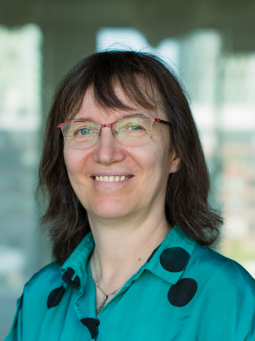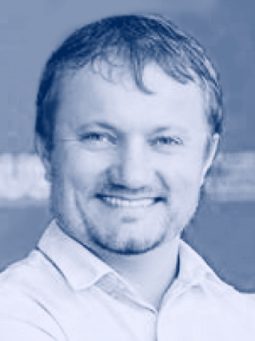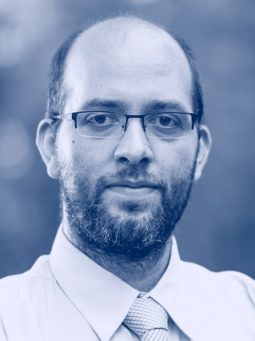What's
PhD Themes 2024: Advanced Topics in Machine Learning
Supervising team: Mária Bieliková (KInIT guarantor), Jana Kosecka (George Mason University), Branislav Kveton (Google Research), Peter Richtárik (KAUST), Martin Takáč (Mohamed Bin Zayed University), Peter Tino (University of Birmingham), Peter Dolog (Aalborg University)
Key words: machine learning, deep learning, learning theory, optimization, trustworthiness
Machine learning is in the centre of research of artificial intelligence. Many researchers worldwide are dealing with the topics related to machine learning, both in academia and industry. This very dynamic field is characterized with fast transfer of solutions into practical use.
The topics in this domain are defined by premier scientific conferences, where top-class researchers meet, for example ICML (International Conference on Machine Learning), NeurIPS (Advances in Neural Information Processing Systems), IJCAI (International Joint Conference on AI), COLT (Conference on Learning Theory).
This thesis will be advised by an external mentor, who will also define its particular topic.
Interesting research challenges are contained within (but are not limited to) these topics:
- General Machine Learning (e.g., active learning, clustering, online learning, ranking, reinforcement learning, semi-supervised learning, unsupervised learning)
- Deep Learning (e.g., architectures, generative models, deep reinforcement learning)
- Learning Theory (e.g., bandits, statistical learning theory)
- Optimization (e.g., matrix/tensor methods, sparsity)
- Trustworthy Machine Learning (e.g., fairness, robustness)
There are many application domains, where advanced machine learning methods can be deployed.
The research will be performed at the Kempelen Institute of Intelligent Technologies (KInIT, https://kinit.sk) in Bratislava in cooperation with researchers from highly respected research units. A combined (external) form of study and full employment at KInIT is expected.
Supervising team
 Mária Bieliková Lead researcher, KInIT More info
Mária Bieliková Lead researcher, KInIT More info  Mária Bieliková Lead researcher, KInIT
Mária Bieliková Lead researcher, KInITMária Bieliková is an expert researcher at KInIT. She focuses on human-computer interaction analysis, user modeling and personalization. Recently, she has been working in data analysis and modeling of antisocial behavior on the Web. She is active in discussions on trustworthy AI at the national and European levels. Maria has supervised 19 successful doctoral graduates to date. She co-authored 70+ journal publications, 200+ conference papers, received 4,400+ citations (Google Scholar h-index 30), and serves on the editorial board of two CC journals. She has been the principal investigator in 40+ research projects.
 Jana Kosecka Professor, George Mason University, USA More info
Jana Kosecka Professor, George Mason University, USA More info  Jana Kosecka Professor, George Mason University, USA
Jana Kosecka Professor, George Mason University, USAJana Kosecka is a Professor at the George Mason University. She is interested in computational models of vision systems, acquisition of static and dynamic models of environments by means of visual sensing, high-level semantic scene understanding and human-computer interaction. She held visiting positions at UC Berkeley, Stanford University, Google and Nokia Research, and served as Program chair, Area chair or senior member of editorial board for leading conferences in the field CVPR, ICCV, ICRA.
Jana is currently mentor of our PhD student: Ivana Beňová
 Branislav Kveton Principal Scientist, Adobe Research, USA More info
Branislav Kveton Principal Scientist, Adobe Research, USA More info  Branislav Kveton Principal Scientist, Adobe Research, USA
Branislav Kveton Principal Scientist, Adobe Research, USABranislav Kveton is a Principal Scientist at Adobe research. He proposes, analyzes, and applies algorithms that learn incrementally, run in real time, and converge to near-optimal solutions as they learn. He made several fundamental contributions to the field of multi-armed bandits. His earlier work focused on structured bandit problems with graphs, submodularity, and low-rank matrices, and ranked lists. His recent work focuses on making bandit algorithms practical
 Peter Richtárik Professor, King Abdullah University of Science and Technology, Saudi Arabia More info
Peter Richtárik Professor, King Abdullah University of Science and Technology, Saudi Arabia More info  Peter Richtárik Professor, King Abdullah University of Science and Technology, Saudi Arabia
Peter Richtárik Professor, King Abdullah University of Science and Technology, Saudi ArabiaPeter Richtárik is a Professor of Computer Science & Mathematics at KAUST. He is one of the founders and a Fellow of the Alan Turing Institute. Through his work on randomized and distributed optimization algorithms, he has contributed to the foundations of machine learning and federated learning. He serves as an Area Chair of leading machine learning conferences, including NeurIPS, ICML and ICLR.
 Martin Takáč Associate Professor, Mohamed Bin Zayed University of Artificial Intelligence, United Arab Emirates More info
Martin Takáč Associate Professor, Mohamed Bin Zayed University of Artificial Intelligence, United Arab Emirates More info  Martin Takáč Associate Professor, Mohamed Bin Zayed University of Artificial Intelligence, United Arab Emirates
Martin Takáč Associate Professor, Mohamed Bin Zayed University of Artificial Intelligence, United Arab EmiratesMartin Takáč is an Associate Professor and Deputy Department Chair of Machine Learning Department at MBZUAI, where he is a core faculty at the Optimization & Machine Learning Lab. His current research interests include the design and analysis of algorithms for machine learning, applications of ML, optimization, HPC. He serves as an Area Chair of ML conferences such as AISTATS, ICML, and NeurIPS.
 Peter Tino Professor, University of Birmingham, UK More info
Peter Tino Professor, University of Birmingham, UK More info  Peter Tino Professor, University of Birmingham, UK
Peter Tino Professor, University of Birmingham, UKPeter Tino is a Professor at the School of Computer Science, University of Birmingham, UK. He is interested in the interplay between mathematical modelling and machine learning (dynamical systems, probabilistic modelling, statistical pattern recognition, natural computation). Peter is interested in both foundational aspects and applications in interdisciplinary contexts (e.g. astrophysics, biomedical sciences, cognitive neuroscience).
He is a Fellow of the Alan Turing Institute and has served on editorial boards of leading journals such as IEEE TNNLS, IEEE TCYB, Neural Networks and Scientific Reports.
 Peter Dolog Associate Professor, Aalborg University, Denmark More info
Peter Dolog Associate Professor, Aalborg University, Denmark More info  Peter Dolog Associate Professor, Aalborg University, Denmark
Peter Dolog Associate Professor, Aalborg University, DenmarkPeter Dolog is an Associate Professor at the Department of Computer Science, Aalborg University, Denmark. His current research interests include machine learning and data mining in the areas of user behavior analysis and prediction, recommender systems, preference learning, and personalization. Peter is a senior member of ACM, served as a senior program commitee member of AI related conferences as well as a general chair of UMAP, HT and Web Engineering conferences.


